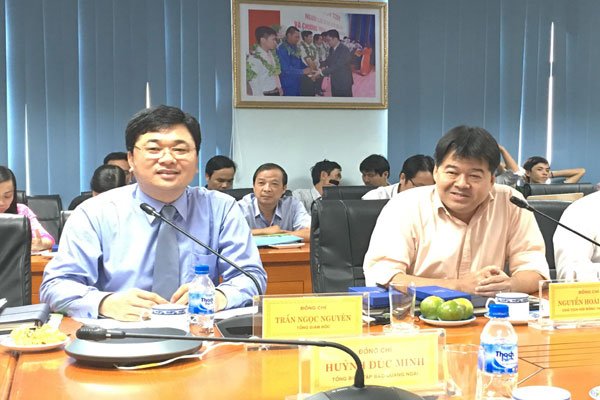Binh Son Refining and Petrochemical Co Ltd (BSR), the operator of Dung Quat Oil Refinery, will conduct its IPO in the fourth quarter with 5-6% of shares to be offered, but certain difficulties are in sight, said BSR board chairman Nguyen Hoai Giang.

At a press conference at the company headquarters last Friday, Giang said his firm would send a evaluation report to the Ministry of Industry and Trade in the following week. The Government will deliberate over the plan for equitizing BSR next month, and hopefully approve it in July or August.
“BSR is the largest State-owned enterprise to carry out the IPO over the past few years. We believe everything will go smoothly since the company’s business indicators are very good,” said Giang.
Since its trial run to this May, Dung Quat has met 40% of the nation’s fuel demand, with total revenue of US$40 billion and tax payments of US$6 billion for the State budget, said BSR general director Tran Ngoc Nguyen.
“Thus, up to this point, BSR’s contribution to the State budget has doubled the total investment of about US$3 billion in the refinery,” he said.
The facility’s total profit after tax has amounted to some VND13.4 trillion, he added.
The rates of return in the first four months of 2017 were very positive, with return on equity (ROE) reaching 8.67%, return on assets at 4.81% and capital conservation coefficient 1.091, Nguyen said.
Besides the request of Russia’s Gazprom Neft, BSR has received proposals for cooperation from many foreign oil and gas companies, international financial institutions and banks, he added.
“Our business is thriving because when the oil price goes down, the final downstream stage (refinery) is the most effective (compared with the upstream stage),” Nguyen said.
The project for expansion of Dung Quat refinery will be handed over a cleared site late this June and is expected to be completed by the end of 2021.
Some US$1.2 billion, or 70% of the capital needed, will be borrowed for the project, Nguyen said.
When the expanded refinery comes into operation, its processing capacity will be 8.5 million tons of crude oil per year, instead of 6.5 million tons, meeting 50-60% of the fuel demand nationwide.
Difficulties
However, when the refinery was built in 2009, it was designed to produce gasoline meeting Euro 2 emission standards. In 2011, the Government mapped out a schedule for adoption of Euro 4 emission standards starting in 2017.
Chairman Nguyen Hoai Giang admitted such limitation, saying, “The facility’s equipment system can only meet Euro 2 emission standards. It is very complicated to apply Euro 4-5 standards now. We have to rebuild the industrial workshops, modify the assembly lines, and add technological lines.”
“We cannot suspend (the refinery), still have to make Euro 2 gasoline. Sometimes our desires cannot meet objective requirements,” he added.
Giang described the policy of using Euro 4 gasoline as suitable, but it is necessary to have a roadmap and it is not until 2022-2024 will Dung Quat refinery be able to meet the requirements.
On the prospects of the upcoming IPO, the chairman deemed it also difficult compared to the IPO plan that BSR prepared in 2013.
“Now (IPO) is much tougher than in 2013. Poor financial market, public debt, and scandals of oil and gas companies are bad waves, affecting the trust of investors,” he said.
“Moreover, with the downward trend in the price of crude oil, whether we have enough finance to expand the refinery or not is a big problem.”
However, Giang insisted: “We believe the IPO will be successful.”
SGT